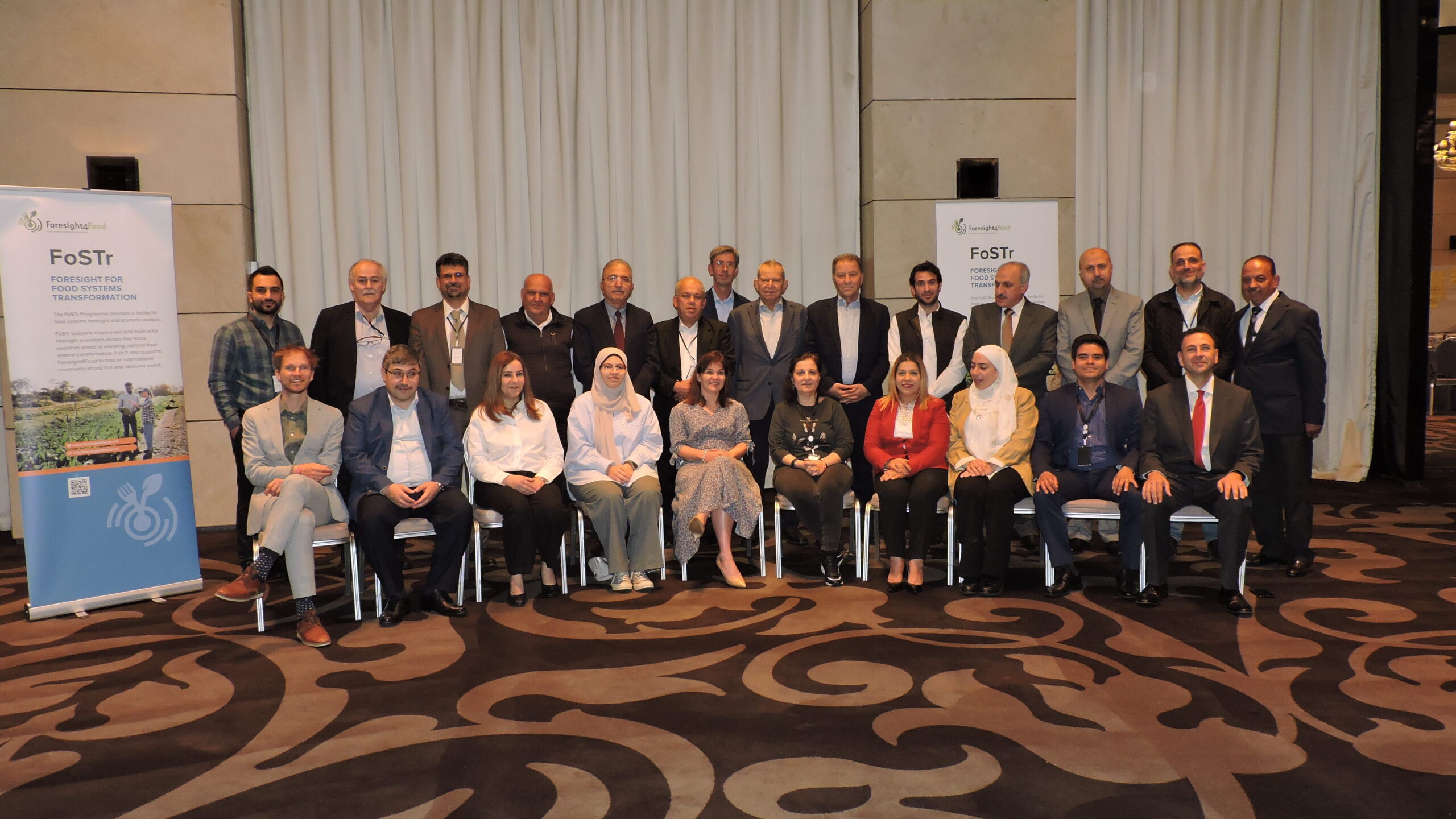Preparations are well underway for the 5th Global Foresight4Food Workshop set to take place in Amman, Jordan, from 15 to 19 June 2025. This dynamic event will bring together foresight thought leaders, innovators, and changemakers from around the world. Designed to spark dialogue, ignite creativity, and drive tangible progress, the workshop offers a unique platform to advance the global foresight agenda for food systems.
In the lead-up to the event, Asem Nabulsi —Foresight4Food FoSTr Programme Deputy Facilitator in Jordan—shares his perspectives on the critical challenges and emerging opportunities shaping global food systems. In this blog, he offers valuable insights into the urgent need for systemic change and highlights the powerful role foresight can play in building a more equitable, nutritious, and sustainable future.
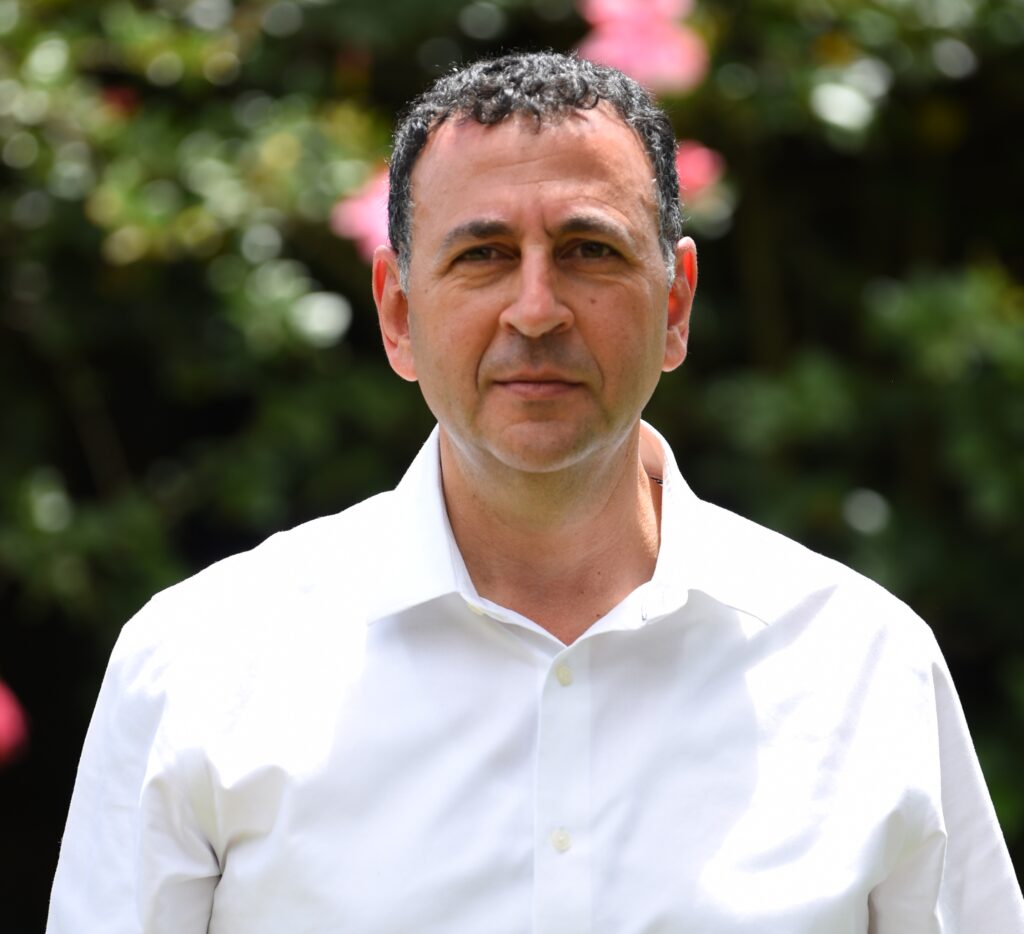
Beyond the Macro Lens: Reclaiming the Food System Narrative
A critical concern shared by many in the global food space is that the decisions influencing food systems are often made at the macro level, detached from the lived realities of communities and the interconnected outcomes they produce. The fragmented approach overlooks how policies and practices affect health, nutrition, livelihoods, and the environment. Foresight provides the structure to consider these dimensions together, helping stakeholders envision multiple futures and make informed, holistic decisions.
Sharing Real-world Experiences
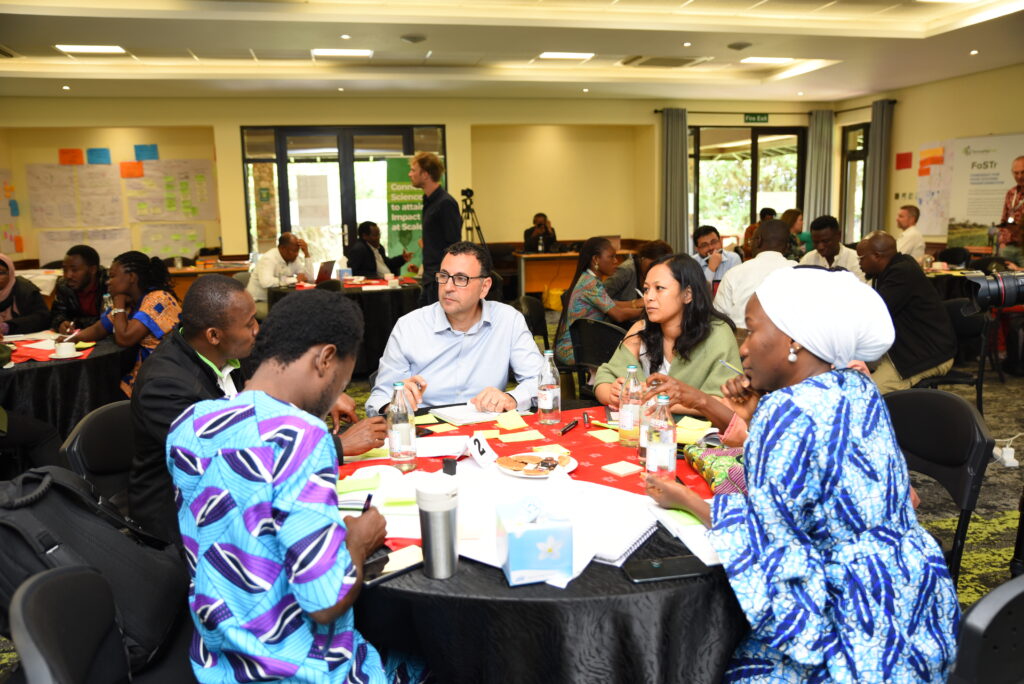
The success of the upcoming Foresight4Food Global Workshop hinges on more than dialogue—it depends on active participation, sharing real-world experiences, and co-creating concrete, implementable recommendations.
When foresight thought leaders, innovators, and food system stakeholders from around the world sit together, it should not just be about knowledge exchange; it should be about laying the groundwork for lasting change through mutual understanding and collective action.
From Dialogue to Action: Integrating Insights into Practice
I see this global workshop as a springboard to rethink professional strategies. One needs to fully understand the importance of multistakeholder perspectives and collaborative design of actions that consider the full spectrum of affected groups. This approach ensures that decisions are not only visionary but grounded in equity and practicality.
Regional Collaboration: The Untapped Potential
While food systems are often discussed within national borders, I would like to remind you that no country exists in a vacuum. Regional interdependence, from raw materials to trade and market access, necessitates greater collaboration. To build more resilient food systems, I suggest enhancing bilateral and multilateral trade, establishing regional food hubs, diversifying trade routes, and creating supportive regulatory frameworks. These steps could buffer regions against future disruptions and strengthen food sovereignty.
The Leadership Imperative
Leadership is essential for steering transformation. Setting a suitable regulatory environment, mapping the current food system and agreeing on the goals and best way forward to reach the desired goals, fostering a cooperative environment for change, uniting stakeholders understanding and action towards the desired goals, taking the decisions and actions that incentivise actions that enhance positive food system transformation at the different levels and for different stakeholders, raising awareness for all actors affecting and being affected by food systems, creating a national re-iterative process to regularly examine the efficacy of changes made and looking out for changing factors that might affect the food system, and starting the communication and actual practical steps for regional cooperation.
From Vision to Implementation: Making Collaboration Stick
A practical roadmap to ensure the workshop leads to a lasting impact is to focus on the importance of moving from vision to implementation. It means building a shared understanding, defining common goals, and designing actions that are informed by the perspectives of diverse stakeholders across multiple levels. Open discussions around potential trade-offs and strategies to mitigate negative impacts are also key. To translate dialogue into action, I would highlight the need for clear, well-defined plans with assigned responsibilities and timelines. I believe that this structured yet adaptable approach is crucial for fostering durable cross-sector collaboration and meaningful progress.
With these reflections in mind, I look forward to welcoming you in Jordan and seizing this unique opportunity to catalyse both regional and global efforts toward meaningful food system transformation.
By Bart de Steenhuijsen Piters
Foresight4Food is organizing its 5th Global Workshop in June titled “Foresight for Transformative Action in Food System”. To raise the tip of the curtain on this exciting event, we have asked Bart de Steenhuijsen Piters, Senior Scientist Food System at the Wageningen University and Research and Foresight4Food FoSTr programme facilitator, to share some of his thoughts and expectations. Here is what he has to say:

The myth of the “Global” food system
As we approach the 5th Global Foresight4Food Workshop in Jordan, I find myself reflecting on what it truly means to transform our food systems—and what role foresight can play in helping us get there.
Let me begin with a provocation: I believe the idea of a global food system is, in many ways, an illusion.
When we speak about the global food system, we often forget that it’s simply the aggregation of countless national and subnational systems. No one actor is responsible or able to govern it. The UN may think so, but that is an illusion. Instead, we have trillions of individuals, institutions, and businesses shaping the system every day. This diffused responsibility makes governance incredibly complex and leads to a kind of mystification, where the real (geo)political and economic dynamics at lower levels are ignored or misunderstood. Yet, all these food systems are connected for sure. Just look at the effect of the Trump administration and its tariff policies on food markets worldwide.
This is precisely where foresight can help—not by giving us a top-down blueprint but by helping us navigate complexity, anticipate challenges, and co-create transformative pathways.
What success looks like for the 5th Global Foresight4Food Workshop
For me, success for the 5th Foresight4Food Workshop doesn’t lie in just producing new scenarios. It lies in helping us figure out how to act in those scenarios.
I want us to co-develop a joint narrative around food system transformation. I want us to compare how different countries are exploring their options. Most importantly, I want us to dive into the real-world, practical question: how do we move from insight to impact? How do we build pathways for change that involve multiple actors, each taking responsibility? And how do we lead, especially when the pathway forward is contested and uncertain?
These are the questions I hope we will tackle together in Jordan.
Regional collaboration is crucial
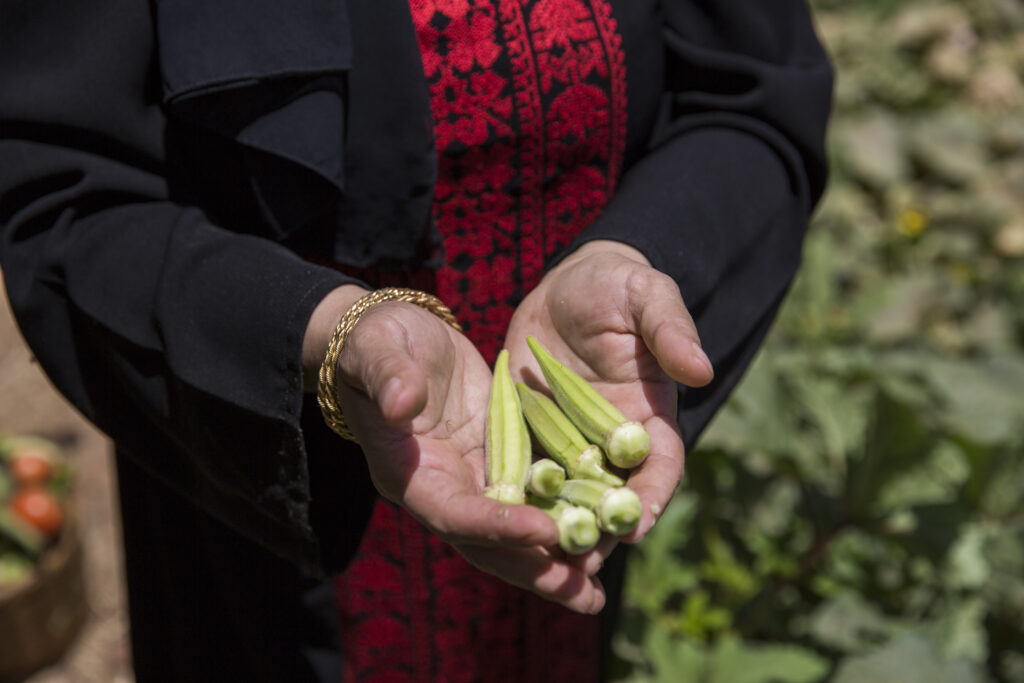
One of the most powerful levers for transformation is regional cooperation. Not only does it allow us to share experiences and foresight approaches among practitioners, but it also aligns with the need for more localized, resilient food systems. This is especially critical in times when global markets are being challenged, multinational food companies continue to concentrate their power and food is more and more used for geopolitical purposes.
We need shorter, regional supply chains and production systems that are better tailored to local contexts. Regional platforms are essential for this. They help us valorise knowledge and foster innovation where it matters most—on the ground.
The leadership we need
Food system transformation demands leadership on many fronts.
We need business leaders who are willing to shift course—who can rethink business models that currently drive unsustainable outcomes and align their strategies with public goals like healthy diets and environmental sustainability.
But we also need leadership that can manage conflict and mediate between diverse interests. Sometimes, this means making bold policy decisions, even when powerful actors resist change. That kind of leadership isn’t easy—but it’s necessary.
A call for courage and collaboration
My hope for this workshop is that it becomes a space of real collaboration. A space where participants listen to each other, share not only their successes but also their failures, and resist the urge to simply push their own agendas.
We need the courage to explore the unknown together. To ask hard questions. To face the uncomfortable truths. Because only then can we unlock the systemic changes our societies so urgently need—and that, too often, are still moving too slowly or stalling altogether.
I look forward to learning with and from all of you in Jordan.
By Jim Woodhill – Lead Foresight4Food Initiative
It was great to participate in the next phase of Jordan’s journey toward food systems transformation as part of the Foresight4Food Initiative. This significant step brought together around fifty key stakeholders on November 11 to discuss strategies for accelerating change.
The discussions built on earlier work from the Foresight4Food FoSTr Programme in Jordan, including scenario analyses developed during previous workshops, computer modelling results, and a series of policy briefs. These resources provided a foundation for the day’s explorations into actionable pathways for transforming Jordan’s food systems.
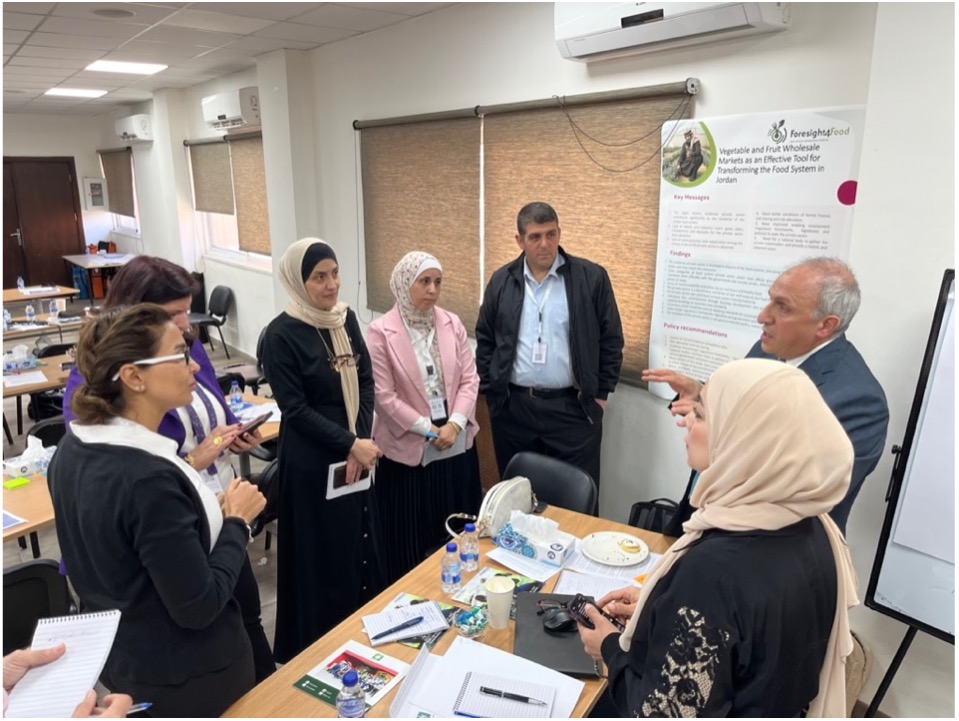
A key highlight of the workshop was the collaborative spirit among diverse stakeholders. This environment fostered consensus-building around critical challenges and opportunities. Participants examined deep-seated barriers to change, focusing on economic and social incentives, the power dynamics of various actors, and entrenched mindsets that hinder progress.
Drawing from detailed policy briefs on topics such as vegetable and fruit markets, food governance, the role of the private sector, and the contributions of civil society, the workshop delved into strategies for enabling meaningful change.
Informed by the policy papers on vegetable and fruit markets, food governance, the role of the private sector and the role of civil society, the workshop looked more deeply into how change can be brought about.
One particularly impactful aspect was the use of computer modelling, conducted with Wageningen University and Research’s MAGNET model. This analysis demonstrated the potential consequences of continuing current practices (“business-as-usual”) versus adopting healthier, more sustainable pathways. Such data-driven insights are instrumental for policymakers, equipping them with evidence to support investments and policy reforms.
Beyond the workshop, conversations with Jordanian universities explored integrating foresight and systems thinking into academic curricula. Additionally, a dedicated training session provided researchers and policymakers with hands-on experience using the MAGNET model to analyze food system changes.
The workshops were made possible with support from the Jordanian Hashemite Fund for Human Development (JOHUD) and the National Alliance Against Hunger and Malnutrition (NAJMAH), underscoring the importance of partnerships in driving food systems transformation.
The Foresight for Food System Transformation (FoSTr) programme, led by Foresight4Food, is now two years into its journey of helping shape more sustainable, inclusive, and resilient food systems. With increasing uncertainties affecting global food systems—from climate change to economic challenges—the need for foresight and scenario analysis has never been more critical.

Running from 2022 to 2025, the programme is funded by the Dutch Ministry of Foreign Affairs through an IFAD grant. Based on the approach of the Foresight Framework, the programme focuses on supporting four key countries: Bangladesh, Jordan, Kenya, and Uganda.
Since its commencement, we have seen tremendous strides in advancing the key objectives of the FoSTr programme across multiple fronts. This blog highlights the progress and impact of the FoSTr programme and the exciting path ahead.
In-Country Impact: Strengthening Foresight Processes
In each of the focus countries, national foresight processes gained momentum, engaging a wide range of stakeholders, including government bodies, research institutions, and community representatives. In total, 403 individual stakeholders participated in in-country workshops across the four countries, contributing to meaningful conversations about the future of food systems.
Here is a quick overview of FoSTr programme’s progress in each of the focus countries:
Bangladesh – Strong government buy-in has been established, with collaboration from the Ministry of Food and other key players, all contributing to the national food system transformation agenda.
Jordan – Partnerships with the Ministry of Agriculture and other government entities have positioned FoSTr as a key advisor, particularly in driving forward the work of the newly established Food Security Council.
Kenya – Foresight analysis has been particularly active at both the national and county levels, with significant involvement from the Nakuru and Marsabit County governments.
Uganda – FoSTr is closely aligned with the Uganda Planning Authority, helping develop foresight tools for future food system planning.
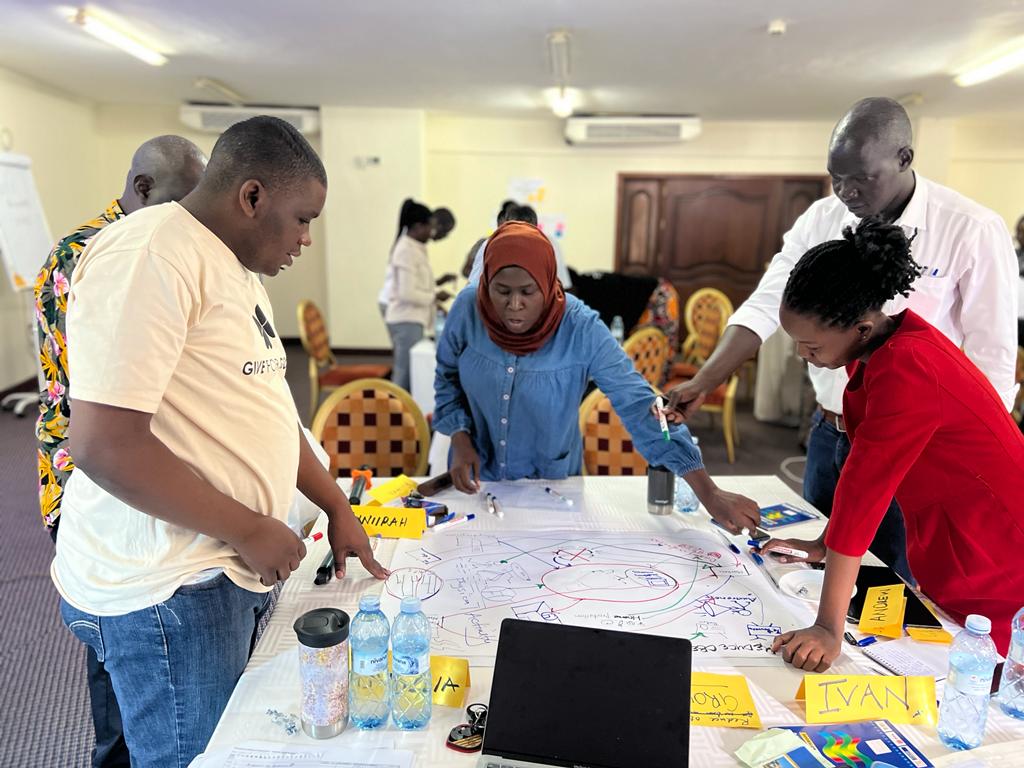
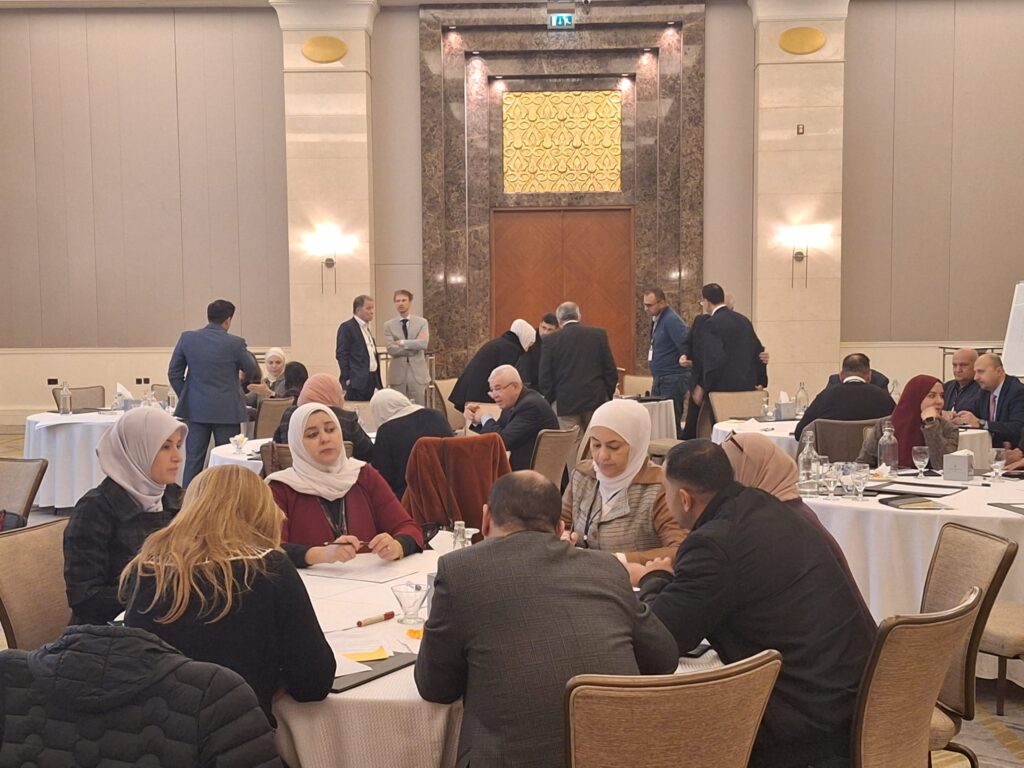
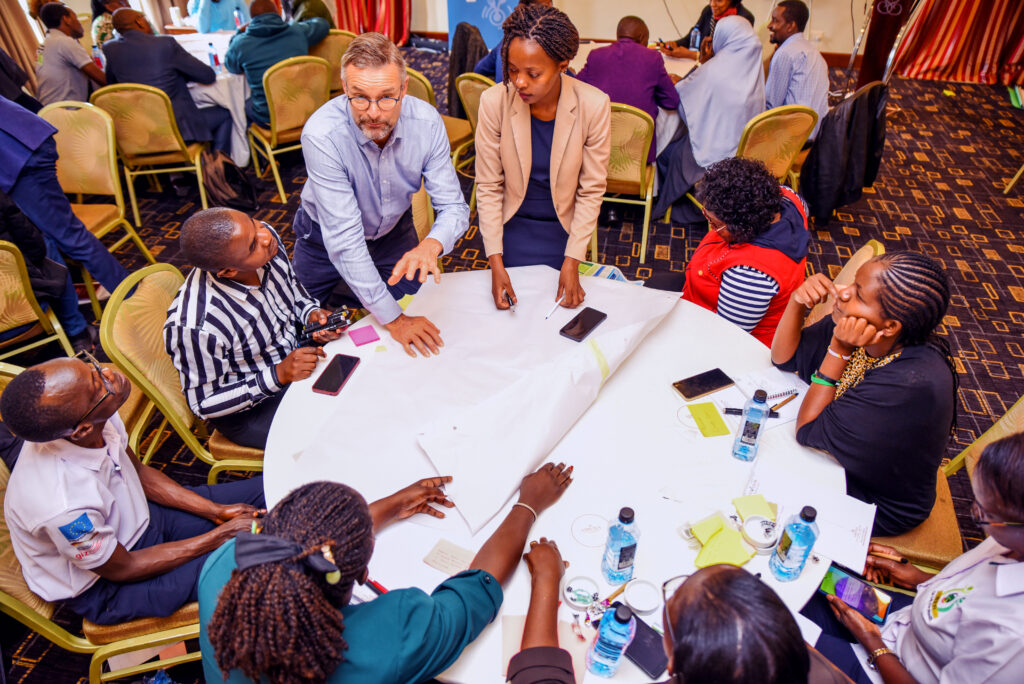
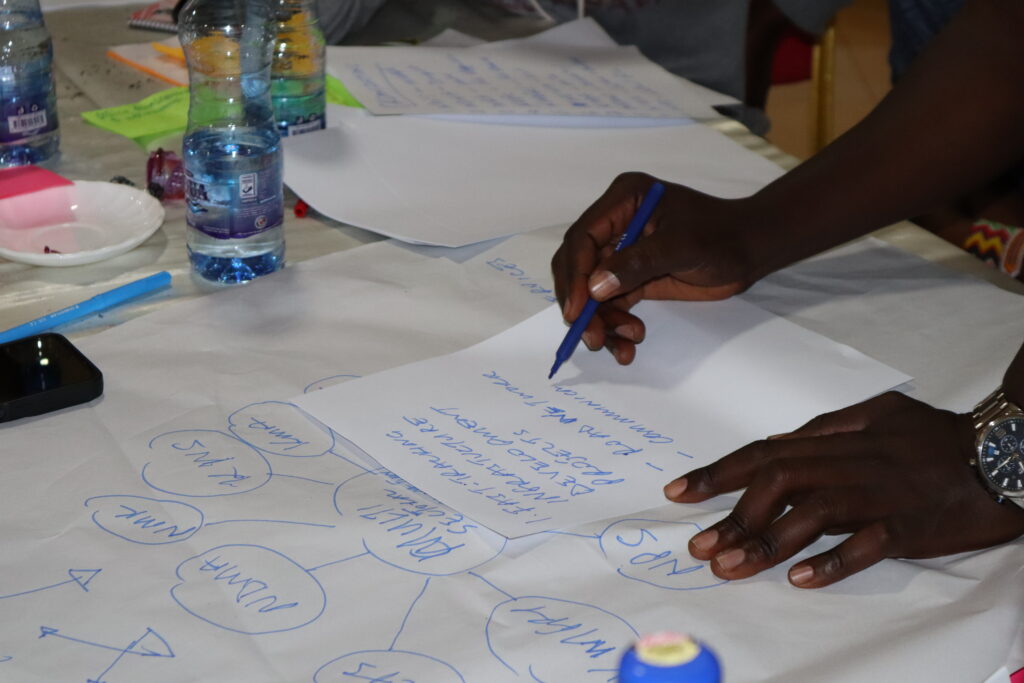


Global Collaboration: Building a Brokering Hub
On a global scale, FoSTr expanded its network of foresight and food systems practitioners, deepening collaboration across organizations like the Forum for Agricultural Research in Africa (FARA), the Global Alliance for Improved Nutrition (GAIN) in Bangladesh, and a number of renowned research institutes in the focus countries.
The work of FoSTr programme was very well-received at the 4th Global Foresight4Food Workshop in Dhaka, where more than 120 foresight practitioners from Asia, Africa, and Europe gathered to share insights on foresight methodologies and food system challenges.
Read also:
Using Foresight to Re-imagine the Future of Food Systems: Foresight4Food holds its 4th Global Meeting – by Jim Woodhill
In a highly interactive week, participants engaged in a masterclass on foresight approaches, shared their experiences and lessons, heard from thought-leaders on food systems and foresight, and identified ways of strengthening foresight practice in their own countries and regions…
A Start to the Foresight Process: Food Systems Maps
As a part of the foresight process, there is a need to have a collective understanding of the food system in different contexts. Hence, the Foresight4Food FoSTr team in collaboration with our facilitators and research partners in each focus country, created comprehensive food systems reports mapping the dynamics, trends, drivers, and activities within the food system.
These Food System Maps offer an initial snapshot of the current food system status in the focus countries and are intended to inform a more comprehensive foresight process. As the dynamics, trends, drivers, and activities within the food system continually change, these reports welcome ongoing reflection and discussion.
Knowledge Base
FoSTr also played a vital part in strengthening the Foresight4Food Resource Portal, which provides access to Foresight Studies, key data around Food System Drivers and Outcomes, a database of Foresight Initiatives, and other academic literature that helps food systems practitioners develop better Foresight Models.
The Foresight4Food Resource Portal is regularly updated with the latest research and emerging studies as well as products and resources that come out of different programme activities.
Read also:
The Complexity of Global Drivers of Food System Transformation – by Bhawana Gupta
The global food system needs to be transformed. It needs to deliver better health and improved livelihoods while protecting the environment and minimizing negative social impacts. However, there are many interconnected factors playing a role. Food Systems are complex…
Overcoming Challenges
Like any ambitious programme, FoSTr encountered its share of challenges. These included navigating political instability in some focus countries. Meanwhile, navigating the political economy of food systems—especially where entrenched power dynamics and vested interests are at play—required FoSTr to strike a delicate balance between supporting ongoing policy processes and introducing more transformative ideas for change.
The Way Forward
As the Foresight4Food FoSTr programme enters its third and final year, several key objectives will guide the remaining activities:
Brokering Foresight Processes: Continue to build connections with national stakeholders and existing initiatives, ensuring that foresight insights are integrated into policy-making and planning processes.
Capacity Building: Organize intensive face-to-face training workshops to further enhance foresight facilitation skills and broaden participation from underrepresented groups, including the private sector and youth.
Scenario Analysis and Policy Recommendations: Complete the ongoing scenario analyses and translate these into clear policy recommendations that will guide national food system transformation agendas.
Sustaining Momentum Beyond 2025: Establish sustainable communities of practice that can continue to drive foresight activities beyond the programme’s official end.
Conclusion: A Transformative Journey
In an era where global food systems are under immense pressure due to climate change, population growth, and shifting socio-economic landscapes, forward-thinking approaches are critical to ensuring food security and sustainability.
The Foresight4Food FoSTr programme has made significant headway in its mission to advance food system foresight processes in Bangladesh, Jordan, Kenya, and Uganda while building a broader global network of foresight practitioners. As we look ahead to the final year, the focus will be on translating foresight insights into action, empowering national stakeholders, and ensuring that the work of FoSTr continues to have a lasting impact on food systems worldwide.
Bonus: FoSTr Facilitators Insights
As the Foresight4Food FoSTr programme continues to foster systemic change in global food systems, the programme facilitators will be sharing their observations on the work and progress of FoSTr programme in their respective countries through insightful blogs. Watch this space and our social media channels for more updates.
By Zoe Barois
Over the past year, the Foresight4Food Foresight for Food System Transformation – FoSTr team and our country partners have begun a foresight process in Jordan, Uganda, Kenya, Bangladesh, and Niger to support national food system transformation. As an initial step, a collective understanding of the food system in different contexts was needed. Hence, the Foresight4Food team in collaboration with our facilitators and research partners in each focus country, created comprehensive food systems reports mapping the dynamics, trends, drivers, and activities within the food system.
Being a lead on food system mapping, I’m sharing my reflections on the process in this blog.
We started with a scoping phase using the Foresight4Food foresight framework, which allows for flexibility and contextual adaptation. This phase involved identifying key stakeholders, understanding their interests, and assessing current and future concerns.
Our next goal was to foster a shared understanding of the food system’s key dynamics, outcomes, drivers, and activities to identify trends and uncertainties. This collective understanding forms the foundation for a participatory process using foresight and scenario analyses to support meaningful food systems change.
The second step, system mapping, was done in collaboration with country facilitators and research teams. We used the Foresight4food framework to identify key food system outcomes, activities, and drivers, considering their interaction with the broader environment. Data were compiled from national and global sources and generated through participatory workshops.
In addition to providing an overview of current status and trends, we conducted a deeper analysis using causal loop diagrams created with research partners during workshops. This approach helped identify trade-offs and synergies, informing actions to improve food system outcomes. We also noted recurring patterns that affect feedback loops, further clarifying the system’s structure.
These reports offer an initial snapshot of the current food system status and are intended to inform a more comprehensive foresight process. As the dynamics, trends, drivers, and activities within the food system continually change, these reports welcome ongoing reflection and discussion.
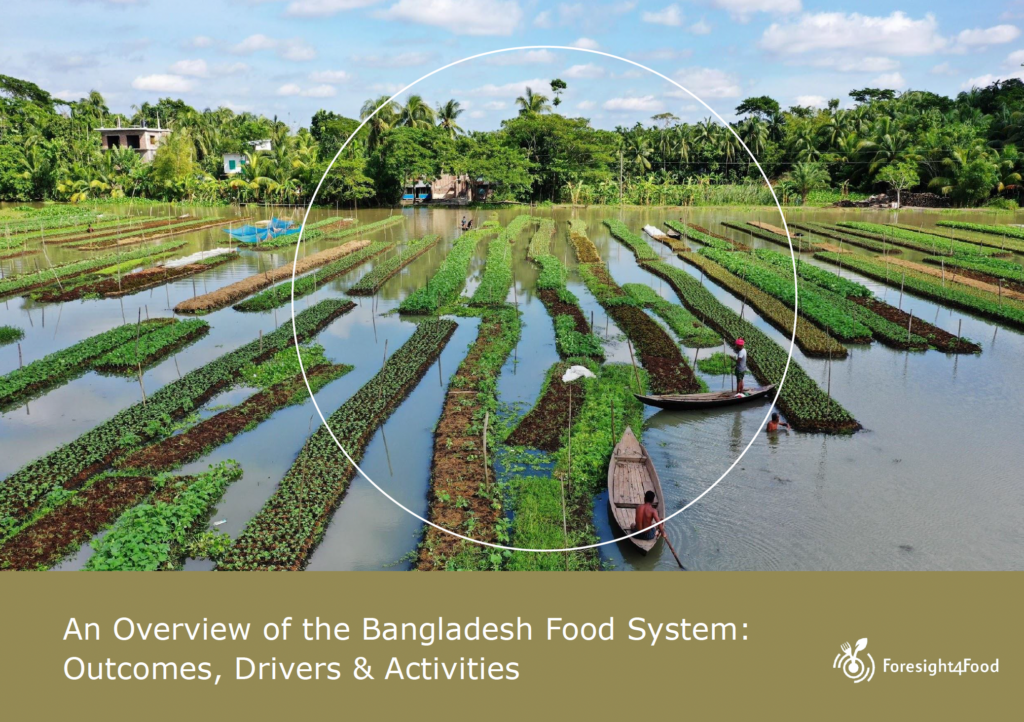
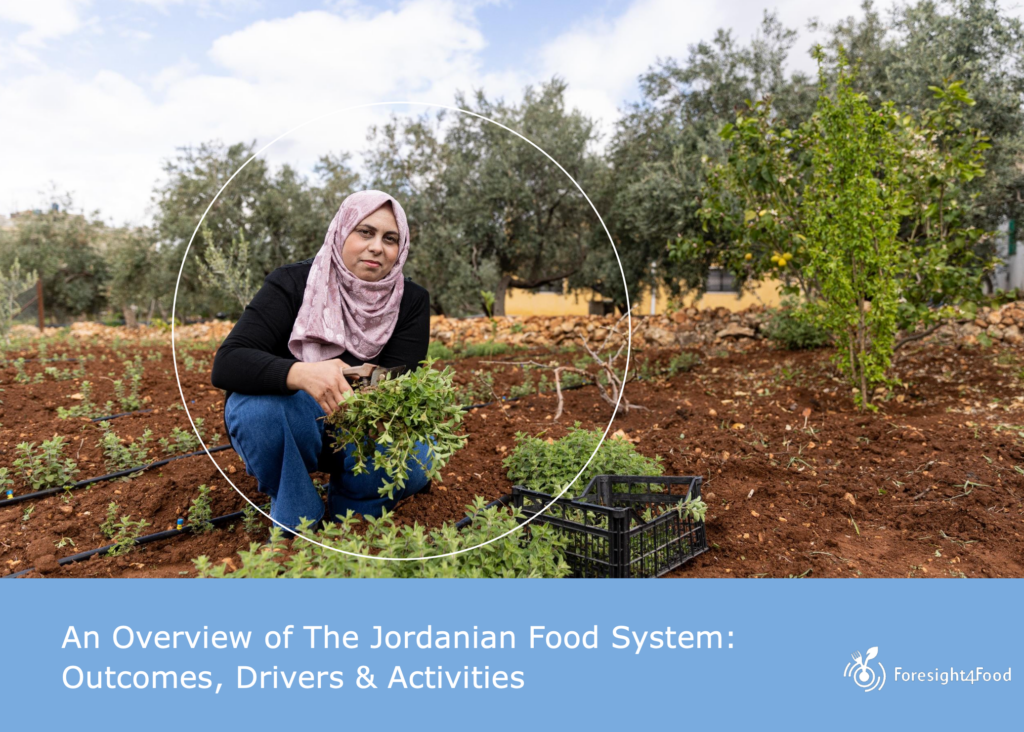
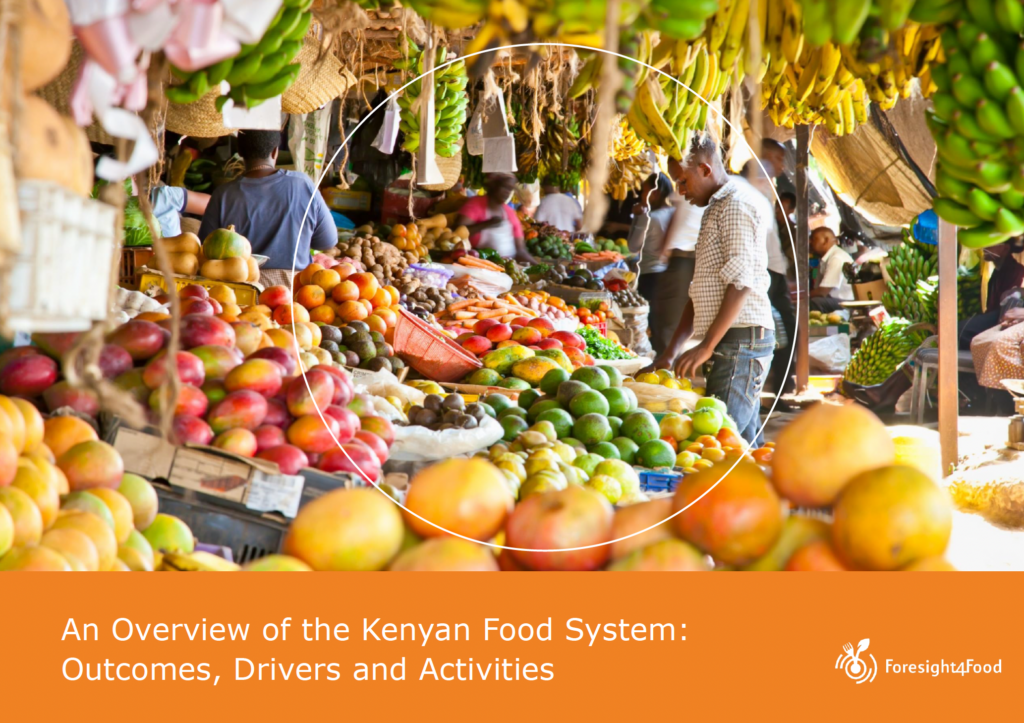
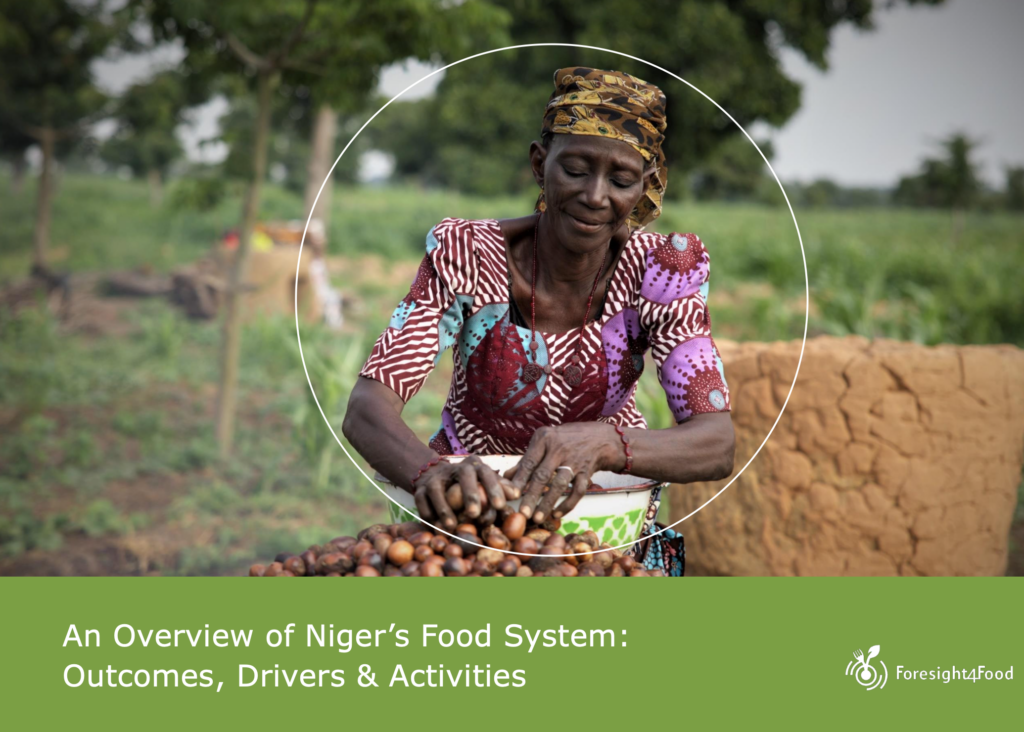
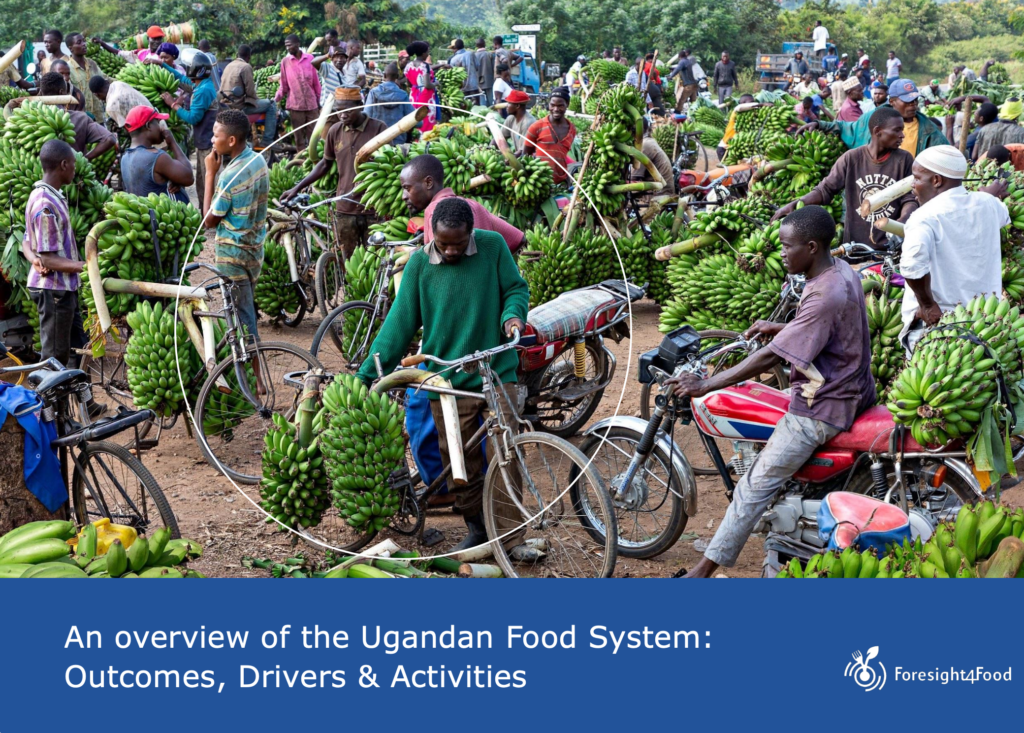
Read and download reports
by Bram Peters
As a part of the FoSTr programme, the Foresight4Food team organized the “Exploring Alternative Futures for Jordan’s Food System” workshop in Amman, Jordan that brought together food systems stakeholders in Amman to discuss the future of Jordan’s food security. Here are some of the observations and insights from the event.
With themes of resilience, adaptation, action, and collaboration, participants engaged in scenario planning and back-casting exercises to anticipate challenges and shape future outcomes. Key uncertainties like water availability, healthy diets, regional trade, and business structures were explored through four scenarios set in 2040. These insights, supported by quantitative modeling, fostered rich discussions about desirable futures and the actions needed today to create a sustainable, resilient food system for Jordan.
During the workshop, colleagues from the University of Jordan and Jordan University of Science and Technology presented four policy briefs. These were: Food Loss and Waste, Water-to-Food Conversion, State of Smallholder Farming in Jordan and Malnutrition. Each policy brief captures the state of knowledge and offers recommendations to explore how to address these issues from a food systems perspective.
The FoSTr team introduced four critical uncertainties that will be highly important and uncertain to the long-term future of the Jordan food system:
- The extent of fresh water available to agriculture
- The extent to which healthy diets are adopted
- Level of ease of regional trade
- The type of business structure the food system will have
Each of these uncertainties was combined to offer four scenarios, taking place in 2040, up for discussion with the participants. Supported by insights from quantitative simulation modelling, the implications on food systems outcomes were explored in each scenario. Some scenarios described that the people of Jordan adopt healthy diets despite a challenging regional trade situation. In others, severe limitations on fresh water for agriculture were seen in combination with a highly corporate-led food system.
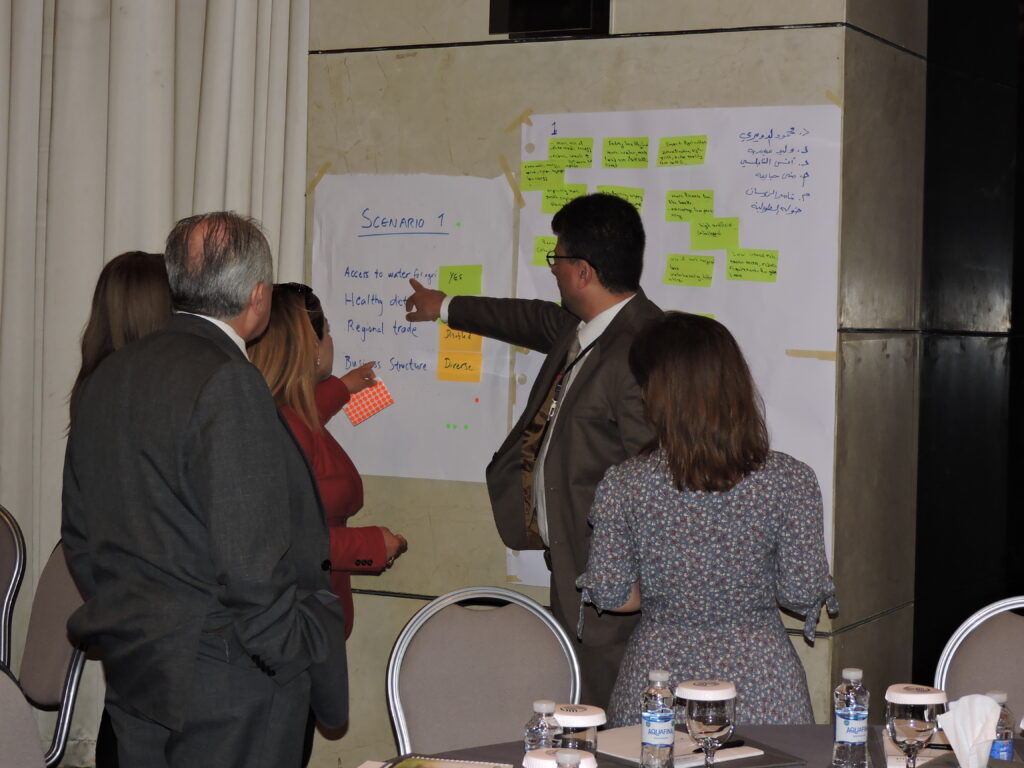
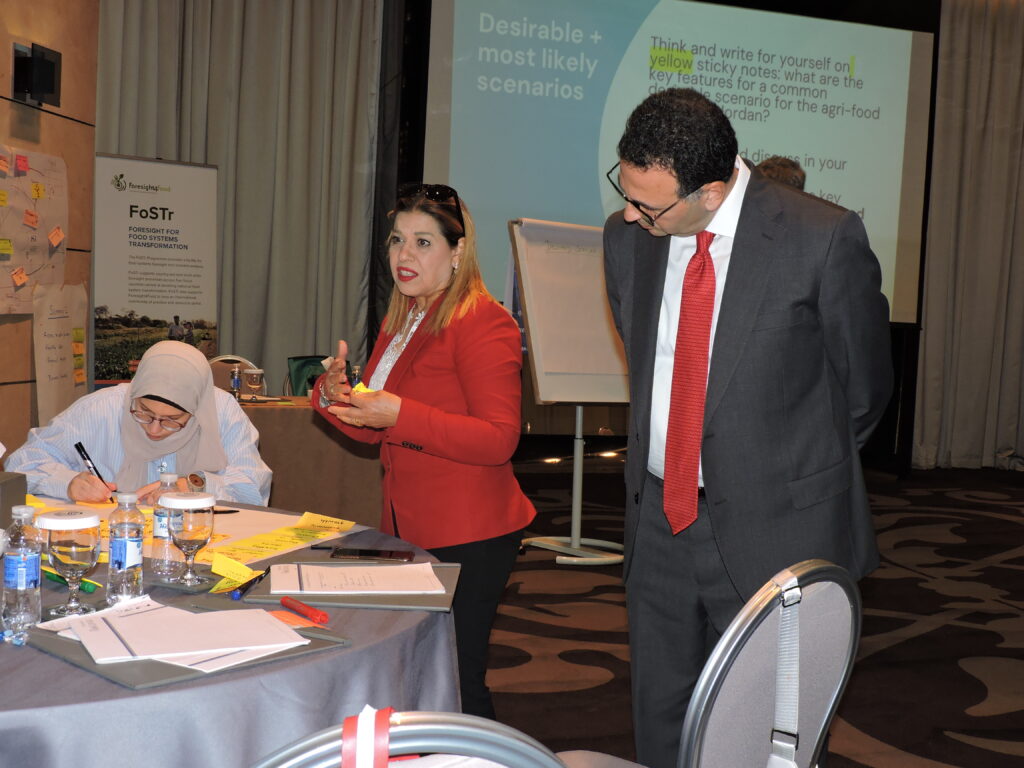
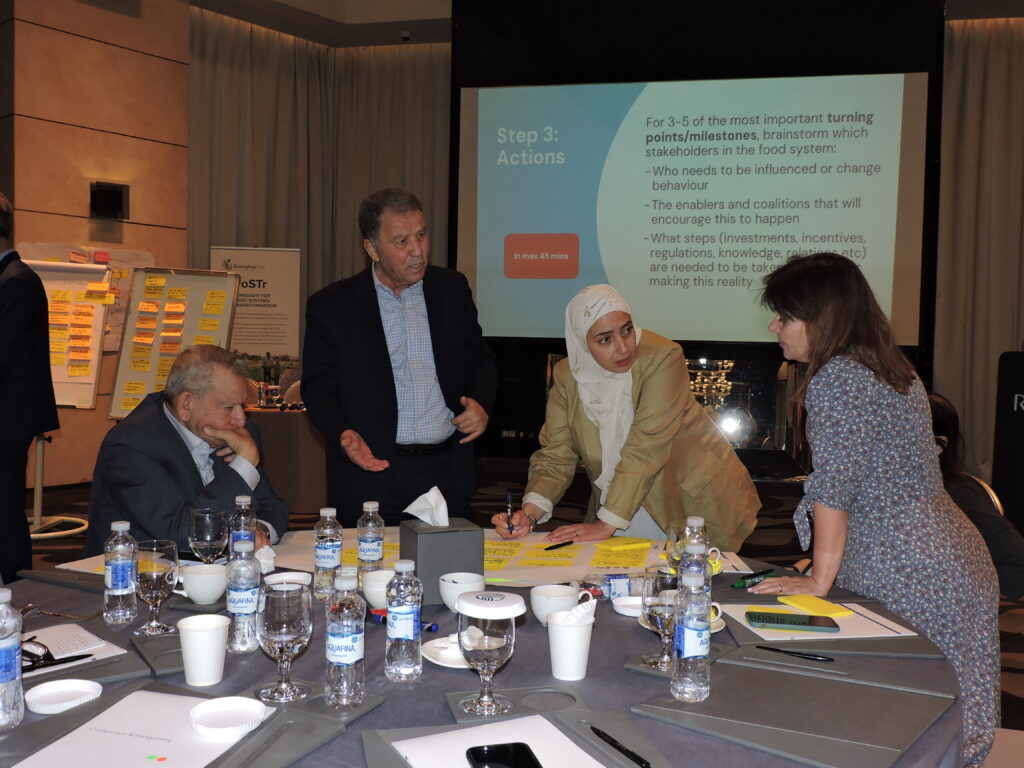
Additionally, the participants explored how that situation might look in each. These scenarios served to open up minds towards the possibility of different situations emerging in the future and highlight the need for anticipatory action and systemic change.
The scenarios led to a discussion of what might be the ‘most likely‘ and ‘most desirable’ scenarios for the Jordan food systems stakeholders. The outline of a desirable future, informed by trends and uncertainties, was formulated to serve as a guiding star. A back-casting approach was used to then explore what events and turning points might occur between 2040 and now to realise that desired future. Based on this timeline, stakeholders brainstormed a range of different actions and stakeholders which are needed now, to already start pushing the system towards the Desired Future.
Building on the encouraging shared co-ownership of the results of the workshop, the Foresight4Food FoSTr team will continue efforts to develop policy briefs, deepen the action areas that were developed, and support the Food Security Council of Jordan in proving the underpinnings for the ongoing work on national food systems transformation.
